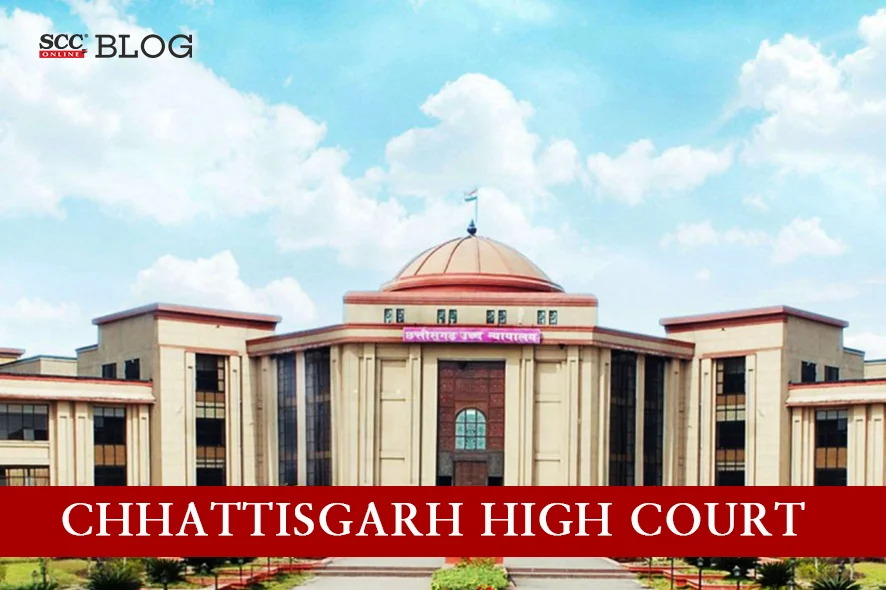Chhattisgarh High Court: In a case wherein, an appeal was filed by the appellant-defendant against the judgment and decree dated 22-11-2016, whereby a specific performance suit was decreed in favour of the respondent-plaintiff, the Division Bench of Goutam Bhaduri* and Deepak Kumar Tiwari, JJ., opined that if during the trial of the suit, the respondent-plaintiff was not subjected to examination, the facts deposed by the power of attorney holder cannot be relied upon and accordingly set aside the judgement and decree passed by the Trial Court.
Background
In the instant case, a suit was instituted by the respondent-plaintiff in the Trial Court against the appellant-defendant’s uncle, Kheduram, who died issueless during the pendency of the suit. Thereafter, his nephew, the appellant-defendant represented him as a legal representative.
The respondent-plaintiff through his power of attorney holder, Chitpal Singh Waliya filed a civil suit on the ground that Kheduram had entered into sale agreement of his property on 18-12-2009, for a sale consideration of 12,25,000, out of which certain amount was paid towards the earnest money. The respondent-plaintiff also stated that the during the subsistence of contract, Rs. 50,000 was paid. Further, the earnest money was increased to Rs 2,50,000 ad date of execution of sale deed was extended from 17-3-2010.
The respondent-plainitff stated that, despite serving notice to execute the sale deed to the appellant-defendant, the same was not executed. Whereas, the appellant-defendant asserted that they had issued notice for execution of the sale deed, but the respondent-plaintiff had avoided the same.
The Trial Court based on the evidence held that the agreement dated 18-12-2009 was proved to be executed and thus, decreed the suit for specific performance in favour of the respondent-plaintiff.
Thus, the appellant-defendant filed the present appeal.
The appellant-defendant contended that the respondent-plainitff was not examined and Chitpal Singh Waliya, who was examined as a witness, was not a party to the transaction as he had no personal knowledge, therefore his evidence could not be read in support of the respondent-plainitff.
Analysis, Law, and Decision
The Court noted that the civil suit in the Trial Court was filed by the respondent-plainitff and had his signature on the plaint. However, Chitpal Singh Waliya, who was the power of attorney holder was examined as a witness.
The Court stated that the power of attorney was given by the respondent-plaintiff to to his father on 3-2-2014 and another power of attorney to Chitpal Singh Waliya on 14-2-2012. Thus, the Court stated that no power of attorney existed on 18-12-2009, which was the date of execution of agreement.
Therefore, the Court stated that the issue that arose before the consideration was what would be the effect of evidence of Chitpal Singh Waliya in the absence of examination of the respondent.
The Court relied on Adivekka v. Hanamavva (2007) 7 SCC 91, wherein it was held that in a case when the plaintiff was not examined, the non-examination of the party to the suit would lead to draw an adverse inference against him.
The Court further referred to Man Kaur v. Hartar Singh Sangha (2010) 10 SCC 512, and opined that in the present case, since the respondent-plainitff was not examined, the facts which was deposed by Chitpal Singh Waliya could not be substituted for the respondent-plaintiff.
The Court further stated that the cross examination of the respondent-plaintiff’s father showed that he had no conversation with Kheduram, as he believed the appellant-defendant to be his son and not his nephew, and he had little knowledge about the existence of the terms of the agreement.
The Court stated that the respondent-plainitff appeared to have discarded the execution of sale deed on the ground that no demarcation was carried out. The Court further stated that the execution agreement did not showed demarcation as a precondition before the execution of sale deed. Therefore, the respondent-plainitff had brought a new condition to be performed which was not in dispute between the parties.
Thus, the Court relied on U.N. Krishnamurthy v. A.M. Krishnamurthy, 2022 SCC Online SC 840 , wherein it was held that “in a suit for specific performance, the plaintiff has to prove that all along and till the final decision of the suit, he was ready and willing to perform his part of contract.”
Accordingly, the Court allowed the appeal and set aside the judgment and decree passed by the Trial Court, and further directed the appellant-defendant to return Rs. 2,50,000 along with the interest at rate of 6% with effect from 17-1-2010, till the actual date of payment to the respondent-plaintiff.
[Ghanshyam Tiwari v. Rajdeep Arora, First Appeal No. 9 of 2017, decided on 26-07-2023]
*Judgment authored by- Justice Goutam Bhaduri
Advocates who appeared in this case :
For the appellant: B.P. Gupta, Advocate;
For the respondents: Arvind Sinha and Seema Verma, Advocates; Trivikram Nayak, Panel Lawyer


